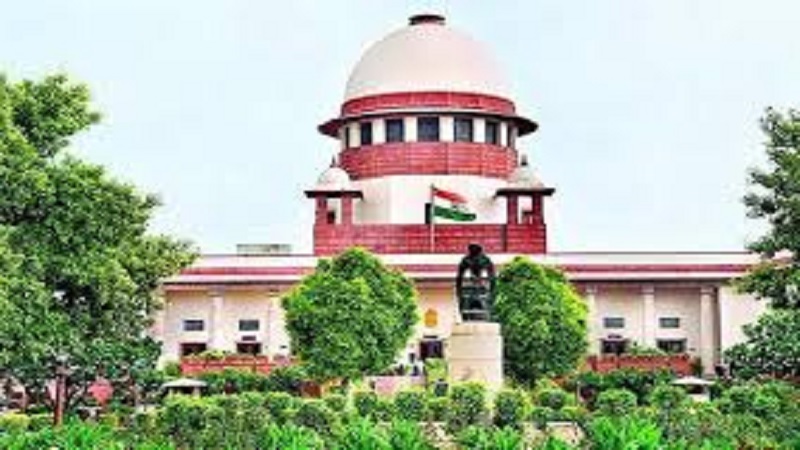 Image Courtesy:thehindu.com
Image Courtesy:thehindu.com
In a significant judgment related to sexual harassment cases, the Supreme Court bench comprising Justices AM Khanwilkar and Dinesh Maheshwari has directed the Union government to pay compensation to an employee of RAW in a sexual harassment case. The apex court found the need to compensate the complainant owing to the improper handling of her complaint and her being subjected to “insensitive and undignified circumstances”.
The bench held that an Internal Complaints Committee, which is a necessary requisite in workplaces as per the Vishakha guidelines and further, the Sexual Harassment of Women at Workplace (Prevention, Prohibition and Redressal) Act, 2013 (POSH Act), was formed after a delay of 3 months in this case. This was deemed by the court as the infringement of the fundamental rights of the petitioner. Moreover, the Committee thus formed did not include a third party representative of any NGO or any other body familiar with issue of sexual harassment, as is required as per the POSH Act. The court held that the inquiry procedure adopted to deal with the complaints of sexual harassment at workplace has a sacrosanct position in law and cannot be undermined. The court further held that the complaints were met with incidents showcasing procedural ignorance and casual attitude of her seniors in the department.
The petitioner had made complaints alleging that she was subjected to sexual harassment by her seniors, Ashok Chaturvedi, the then Secretary in charge of RAW as well as Sunil Uke, the then Joint Secretary. She alleged that these officers asked her to join the sex racket in the organization for securing quicker promotions and when she refused to oblige, she was persecuted.
What followed was a delayed committee which was not attended by the petitioner leading to an ex parte decision clearing the officers of the allegations. Hence, the liability of the officers could not be established, even further as the case went through various levels of courts.
Further, a press release was also issued by the Press Information Bureau regarding the complaint, while also mentioning that the petitioner was in a disturbed state of mind, which was a conjecture drawn from an informal consultation with an AIIMS doctor. The court held this to be unwarranted attacks on the petitioner’s psychological status which had already been quashed by a lower court order.
While deciding on the issue, the court also made the following significant observation with regards to sexual harassment at workplace:
The approach of law as regards the cases of sexual harassment at workplace is not confined to cases of actual commission of acts of harassment, but also covers situations wherein the woman employee is subjected to prejudice, hostility, discriminatory attitude and humiliation in day to day functioning at the workplace. Taking any other view would defeat the purpose of the law.
While stating that the improper constitution of the first Committee to be in violation of Vishaka guidelines, the court also stated that it constituted an “appalling conglomeration of undignified treatment and violation of fundamental rights”. The court observed that even if the allegations could not be proved before the committee, the fundamental rights had been impinged and hence considered it a fit case to award compensation for violation of her right to life and dignity and quantified it at Rs. 1 lakh.
Further emphasizing on violation of the petitioner’s fundamental rights, the court observed thus,
“A priori, when inaction or procrastination (intentionally or otherwise) is meted out in response to the attempt of setting the legal machinery in motion, what is put to peril is not just the individual cries for the assistance of law but also the foundational tenets of a society governed by the rule of law, thereby threatening the larger public interests. The denial of timely inquiry and by a competent forum, inevitably results in denial of justice and violation of fundamental right.”
Another issue to be resolved by the court was of the validity of Rule 135 of the RAW (Recruitment, Cadre and Services) Rules, 1975 which gives the Central government power to voluntarily retire RAW officers whose identity is exposed or compromised. The Bench, while upholding the validity of this section remarked, “Exposure of an intelligence officer could be hazardous not only for the organization but also for the officer concerned”.
Thus, vide this judgment, the Supreme Court has widened the scope of sexual harassment at workplace and highlighted the importance of following due and timely procedure for dealing with complaints of sexual harassment at workplace. This not only gives a strong message to workplaces on dealing with such complaints strictly as per the law but also declares that improper dealing of the same will amount to violation of fundamental rights of the complainant, which can entitle her to pecuniary compensation.
The complete judgment may be read here
Related: